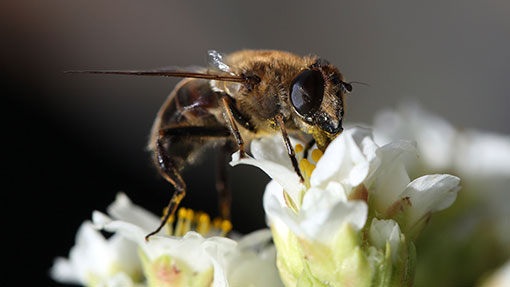Green scheme cash boost for farmers who help bees

Defra secretary Liz Truss has launched a 10-year national pollinator strategy to safeguard and promote bee and insect populations seen as vital to agriculture.
Announced on Tuesday (4 November), the strategy focuses on farmland and countryside stewardship schemes – although other landowners are being encouraged to play their part.
See also: Government plan to promote bee health
The first ever wild pollinator and farm wildlife package will see more funding made available to farmers and landowners who take steps to protect pollinators.
Ms Truss said: “We now estimate the value of insects pollinating our crops and plants amounts to hundreds of millions of pounds.
“That’s why we are doing everything we can to help them thrive.
“Not everyone can become a beekeeper, but everyone from major landowners to window-box gardeners can play their part in boosting pollinators.”
The government has warned that a serious decline in pollinating insects would threaten the health of the UK’s £100bn food industry – damaging the national economy.
“Not everyone can become a beekeeper, but everyone from major landowners to window-box gardeners can play their part in boosting pollinators.”
Liz Truss, Defra secretary
But uncertainty over the condition of pollinators has posed a particular challenge for policymakers trying to develop proposals for action.
In recent years, farm leaders and some scientists have disputed findings which suggest some agrochemicals damage pollinator populations.
“There are questions over the impact the threats against them are having,” says the strategy.
“There are also questions over how resilient agricultural and natural systems are to changes in pollinator populations.”
The strategy says investment in science over the next three to five years aims to address key gaps in this understanding to provide better evidence for policymakers.
The strategy will also see Defra set up bee hives on the roof of its London headquarters. Meanwhile, some supermarkets will distribute bee-friendly flower seeds to customers.
Motorway verges, railway embankments and forests will also be used to create bee and insect friendly paradises aimed at protecting 1,500 species of pollinators found in England.
